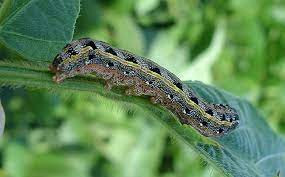
IT is becoming evident that the 2023/24 summer cropping season will be one hell of a nightmare for Zimbabwe.
First of all, El Niño-driven dry weather conditions have already wreaked havoc after most early planted crops wilted when rains suddenly vanished as the crops germinated.The rains later returned and the crops which survived began to flourish.
But the rains have once again dissipated as yet another dry spell sets in; and in its wake a flood of armyworms has been reported in four of the country’s 10 provinces. Critically, the affected provinces are prime maize producers, which makes the situation even dire.
The armyworm, which thrives in dry weather conditions, is obviously targeting to feast on crops and pasture which will be a double tragedy for the nation as both crops and livestock are threatened.
We understand that some farmers have been gifted with chemicals to fight the armyworm. Lucky for them, but we are sure the majority are struggling to access the chemicals.Given that this could turn out to be a calamity, we believe that just as the farmers receive inputs under the presidential input programme, government should promptly provide chemicals to fight the armyworm outbreak.
To expect farmers to go it alone is a recipe for disaster, a disaster which will haunt government into the year because if the bulk of the farmers’ crops and pastures are destroyed by the armyworm it will mean more mouths to feed for the government.
Alternatively, instead of giving individual farmers chemicals and herbicides to fight the marauding caterpillars, government can simply charter a couple of small planes to quickly spray all affected areas before the worms spread to other provinces.
We sincerely hope that our government will not be possessed by the demon of procrastination, because if left until too late, the caterpillars have the potential to destroy all crops and pasture in the affected areas.
- Feature: A letter from home: Zimbabwe’s unending crisis
- New perspectives: Building capacity of agricultural players in Zim
- Mangwe farmers benefit from agric projects
- Could climate change adaptation unlock Africa’s agricultural productivity?
Keep Reading
Aerial sprays can save the situation if we move with speed.It is quite unfortunate that Zimbabwe was not included in a new Food and Agriculture Organisation (FAO) project aimed at harnessing national capacities against the incursion of African armyworm which it launched last year in Eritrea, Ethiopia, Kenya, Somalia, South Sudan and Uganda.
Under the project, Emergency Support to Manage Outbreaks and Infestation by African Armyworm in Eastern Africa, monitoring sites were identified and farmers trained on monitoring, early warning and effective African armyworm management techniques.
Despite that our country was not involved in this programme, it does not stop us from duplicating it here in Zimbabwe. After all, we have FAO personnel resident in this country who will be more than delighted to come to our assistance.
Our main appeal is that we should act with haste against this caterpillar ‘invasion’ before we regret.As we speak, the caterpillars are busy munching away crops and pasture in the countryside and the more we delay to act, the worse the situation will become.










